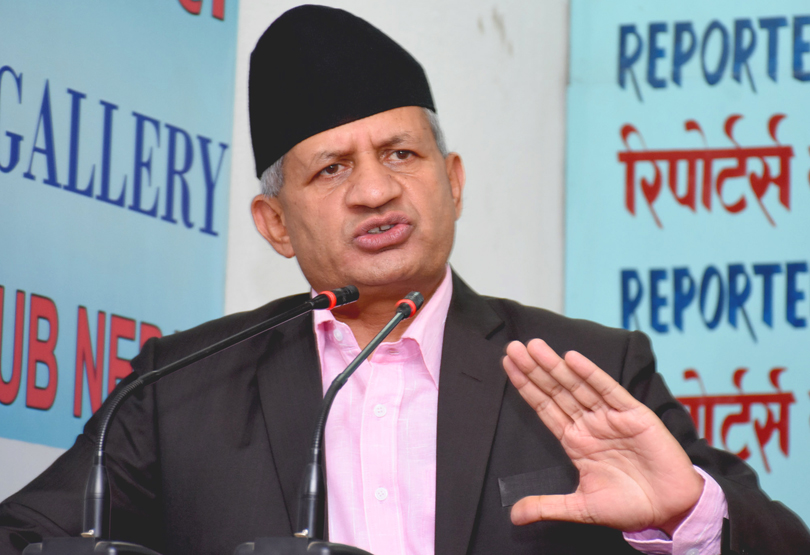India positive for talks on border issue

Kathmandu / Dec. 31: Minister for Foreign Affairs Pradeep Kumar Gyawali on Tuesday said that India was positive for dialogue on border problems.
“Authorities of Nepal and India are holding a meeting of the bilateral mechanism. They are discussing the possible date of the meeting,” he said while speaking at the meeting of the Directive Principles and Responsibilities of the State of the Constitution Implementation and Monitoring Committee of the Federal Parliament.
He said that although India had responded Nepal’s letter in December 2019, further consultation about the date was going on.
“India is ready to settle the issue through dialogue. We are hopeful of resolving it through diplomatic channels,” he said.
He reiterated that the border marking between the two countries would be made as per the Sugauli Treaty, and as per the treaty, there was no dispute that the Kalapani region, including Limpiyadhura belongs to Nepal. We have the evidences about it, he said.
Minister Gyawali said that the bilateral relations between the two countries and development cooperation would not be affected due to the border issue or while the talks were held.
According to him, a secretary-level mechanism will soon start working soon.
Minister for Home Affairs Ram Bahadur Thapa ‘Badal’ said that the government had started the process to establish border outposts at the disputed border areas. He said that the Cabinet had decided to make foot trail to link Limpiyadhura.
Similarly, Minister for Forest and Environment Shakti Bahadur Basnet said that the ministry had started the process to establish the BOP at three different locations. As the area is the public forest, the government need clearance from the environment ministry.
Likewise, Minister for Land Management, Cooperatives and Poverty Alleviation Padma Kumari Aryal said that the ministry was working in collaboration with the Ministry of Foreign Affairs in mapping the border area. However, mapping work at Susta and Kapapani was halted due to Indian dissatisfaction, she said.
